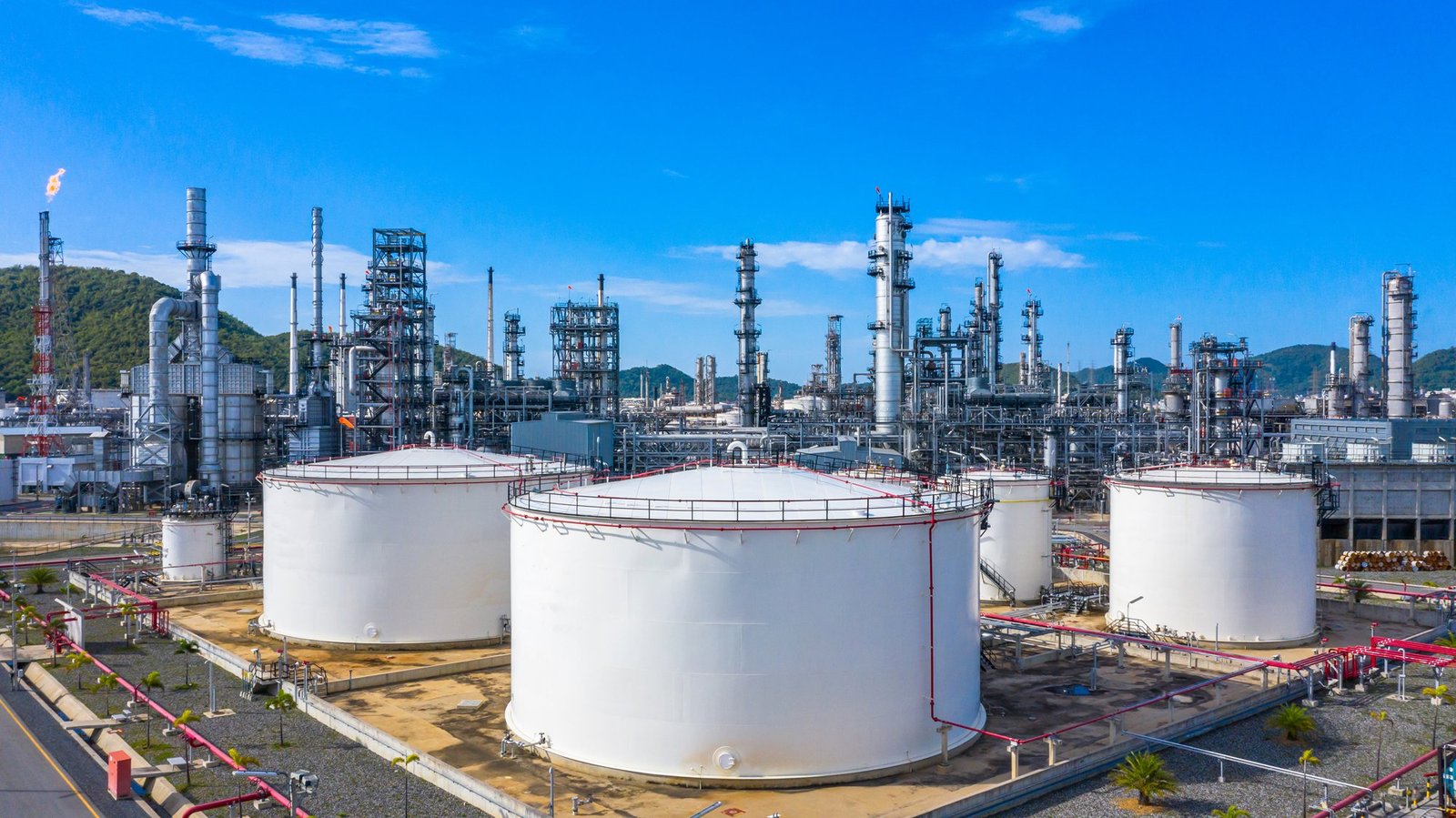
Introduction
Innovations in converting crude oil to chemicals are revolutionizing the manufacturing and energy sectors. This process, known as crude to chemicals (CTC), involves transforming crude oil directly into various chemicals, eliminating the need for traditional refining methods. CTC not only offers economic benefits but also contributes to a more sustainable future by reducing carbon emissions and minimizing waste.
Traditional refining methods involve the separation of crude oil into different fractions, such as gasoline, diesel, and jet fuel, through a series of physical and chemical processes. However, these processes often result in the production of large amounts of byproducts and waste, which require additional treatment and disposal. Moreover, the refining process consumes a significant amount of energy and releases substantial carbon dioxide emissions into the atmosphere.
With the advent of CTC, these challenges are being addressed in a more efficient and environmentally friendly manner. By directly converting crude oil into chemicals, the need for intermediate refining steps is eliminated, leading to a reduction in waste generation and energy consumption. This not only streamlines the manufacturing process but also significantly reduces the carbon footprint associated with traditional refining methods.
Furthermore, CTC allows for the production of a wide range of chemicals, including ethylene, propylene, benzene, and xylene, among others. These chemicals serve as building blocks for various industries, such as plastics, pharmaceuticals, textiles, and automotive, enabling the creation of countless products that we use in our daily lives.
The development of advanced catalysts and process technologies has been instrumental in the success of CTC. These innovations have enabled the efficient conversion of crude oil into chemicals, with higher yields and selectivity. Additionally, the integration of renewable energy sources, such as solar and wind, into the CTC process further enhances its sustainability by reducing reliance on fossil fuels and decreasing greenhouse gas emissions.
As the world continues to seek alternative and more sustainable sources of energy and materials, the crude to chemicals process offers a promising solution. By transforming crude oil directly into chemicals, we can reduce our dependency on traditional refining methods, minimize waste generation, and mitigate the environmental impact associated with the production of chemicals. The advancements in CTC technology are paving the way for a greener and more efficient future in the manufacturing and energy sectors.
Catalytic Reforming: Another important process in the crude to chemicals transformation is catalytic reforming. Catalytic reforming is a process used to convert low-octane naphtha into high-octane gasoline components and aromatic compounds. This process involves the use of a catalyst that promotes the rearrangement of hydrocarbon molecules, resulting in the production of gasoline with improved performance characteristics.
Alkylation: Alkylation is a process that combines olefins, such as propylene or butylene, with isobutane to produce high-octane gasoline blending components. This process is particularly important in the production of aviation fuels, where high-octane components are essential for efficient combustion and engine performance.
Oxidation: Oxidation is a chemical process that involves the reaction of hydrocarbons with oxygen to produce various chemicals. This process is commonly used to produce alcohols, such as ethanol and methanol, which are widely used as solvents, fuel additives, and raw materials in the production of other chemicals.
Dehydrogenation: Dehydrogenation is a process that involves the removal of hydrogen atoms from hydrocarbon molecules to produce unsaturated compounds. This process is commonly used to produce olefins, such as ethylene and propylene, which are important building blocks for the production of plastics, synthetic fibers, and other chemicals.
Isomerization: Isomerization is a process that involves the rearrangement of atoms within a molecule to produce isomers, which are compounds with the same chemical formula but different structural arrangements. This process is commonly used to convert linear hydrocarbons into branched isomers, which have improved properties for use in the production of fuels and lubricants.
Hydrogenation: Hydrogenation is a process that involves the addition of hydrogen atoms to unsaturated hydrocarbon molecules to produce saturated compounds. This process is commonly used to convert unsaturated fats and oils into saturated fats, which have improved stability and shelf life. Hydrogenation is also used in the production of various chemicals, such as ammonia and methanol.
Overall, the crude to chemicals process is a complex and highly integrated system that involves a series of chemical reactions and processes to convert crude oil into a wide range of valuable chemicals. These chemicals play a crucial role in various industries, including plastics, pharmaceuticals, agriculture, and transportation, contributing to the development and advancement of modern society.
The Benefits of Crude to Chemicals
The shift towards crude to chemicals offers several advantages for the manufacturing and energy sectors:
1. Economic Benefits
Crude to chemicals technology enables manufacturers to produce a diverse range of chemicals directly from crude oil, eliminating the need for costly refining processes. This not only reduces production costs but also enhances the overall efficiency of the manufacturing process.
Furthermore, the ability to produce chemicals from crude oil opens up new revenue streams for oil producers. Instead of solely relying on the sale of crude oil, they can now generate additional income by selling value-added chemicals.
For example, a company that previously only sold crude oil can now produce chemicals such as ethylene, propylene, and benzene, which are in high demand in various industries. This diversification of products allows the company to tap into different markets and increase its profitability.
Moreover, the economic benefits extend beyond the manufacturing sector. The crude to chemicals approach also creates job opportunities in research and development, engineering, and operations. As the demand for this technology grows, more skilled workers will be needed to operate and maintain the specialized equipment and processes involved.
2. Environmental Sustainability
One of the key advantages of crude to chemicals is its potential to reduce carbon emissions and minimize waste. Traditional refining processes generate significant amounts of carbon dioxide and other greenhouse gases. In contrast, the CTC process is more energy efficient and produces fewer emissions.
Additionally, CTC reduces the amount of waste generated during the refining process. By directly converting crude oil into chemicals, the need for by-products such as petroleum coke and heavy fuel oil is minimized, leading to a more sustainable and environmentally friendly approach.
Furthermore, the crude to chemicals approach can contribute to the circular economy by promoting the recycling and reuse of materials. For example, certain by-products generated during the CTC process can be used as feedstock for other industries, reducing the need for virgin materials and minimizing waste.
3. Resource Optimization
Crude to chemicals technology allows for the optimal utilization of crude oil resources. By extracting a wider range of chemicals from crude oil, the industry can maximize the value derived from each barrel of oil.
This resource optimization is particularly significant in a world where oil reserves are finite. By efficiently converting crude oil into chemicals, we can extend the lifespan of existing oil reserves and reduce our dependence on new and potentially environmentally damaging extraction methods.
Furthermore, the crude to chemicals approach can also help mitigate geopolitical risks associated with oil dependence. By diversifying the use of crude oil, countries can reduce their vulnerability to oil price fluctuations and supply disruptions.
In conclusion, the shift towards crude to chemicals offers numerous benefits for the manufacturing and energy sectors. From economic advantages to environmental sustainability and resource optimization, this innovative approach paves the way for a more efficient, profitable, and environmentally friendly future.
One of the key factors driving the growth of the crude to chemicals industry is the increasing focus on sustainability. With concerns about climate change and the need to reduce greenhouse gas emissions, there is a growing demand for cleaner and more environmentally friendly manufacturing processes.
Crude to chemicals technology offers a solution to this challenge by utilizing the carbon atoms present in crude oil to produce a wide range of chemicals. This eliminates the need for traditional petrochemical processes, which often rely on fossil fuels and produce significant amounts of carbon dioxide.
By converting crude oil directly into chemicals, the industry can reduce its carbon footprint and contribute to a more sustainable future. Additionally, the process can also help to reduce waste generation, as it allows for the utilization of by-products that would otherwise be discarded.
Moreover, the cost-effectiveness of crude to chemicals technology makes it an attractive option for manufacturers. Traditional petrochemical processes require multiple steps and extensive infrastructure, leading to higher production costs. In contrast, the direct conversion of crude oil into chemicals streamlines the manufacturing process, reducing both capital and operational expenses.
As a result, the crude to chemicals industry is expected to experience significant investment and expansion in the coming years. Companies are increasingly recognizing the potential of this technology and are investing in research and development to further enhance its efficiency and broaden the range of chemical outputs.
In conclusion, the future of the crude to chemicals industry looks promising. With advancements in technology, increasing demand for sustainable manufacturing processes, and cost-effectiveness, this industry is well-positioned to play a vital role in the future of manufacturing and energy sectors.
































